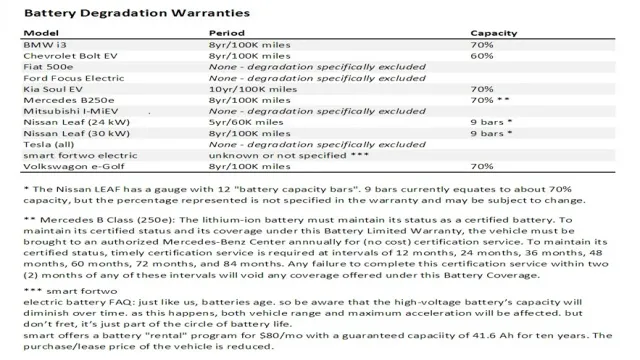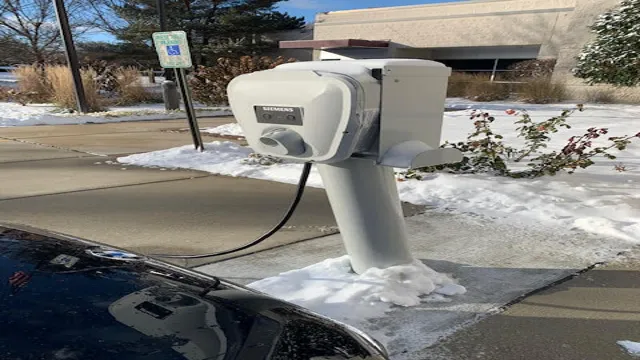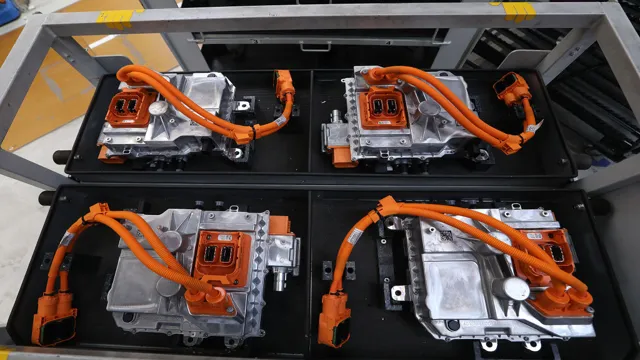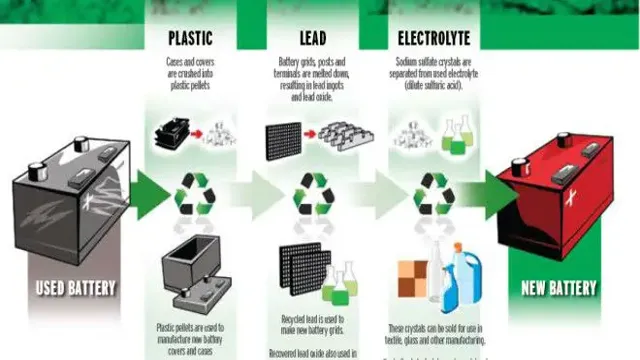Maximizing Your Electric Car’s Battery Life: Understanding the Ins and Outs of Battery Warranty
If you’re considering buying an electric car, you’re probably aware of the numerous environmental benefits, fuel efficiency, and long-term cost savings. But, what about the battery? It’s a critical component of the vehicle, and as such, your electric car battery needs an adequate warranty. After all, you wouldn’t want to be stuck with an expensive, out-of-pocket repair bill should something go wrong.
In this Electric Car Battery Warranty Guide, we’ll dive into everything you need to know about battery warranties, including what they cover and how long they last. So, let’s get started!
Why Battery Warranty is Important
When it comes to buying an electric car, one of the most important factors to consider is the battery warranty. This is because the battery is the most expensive and crucial component of the car, and it is expected to last for a long time. A warranty ensures that any defects or issues with the battery will be resolved for free within a specified period.
Without a warranty, you would be left to foot the bill for any repairs or replacements, which can run into thousands of dollars. Additionally, a battery warranty gives you peace of mind knowing that you are covered in case of any unexpected issues. Therefore, it is essential to carefully review the warranty details before making a purchase and make sure that it covers a reasonable period.
By doing so, you can avoid unexpected expenses down the line and enjoy your electric car worry-free for years to come.
Avoid costly repairs and replacements
Battery Warranty When purchasing a new car, battery warranty may seem like an afterthought. However, understanding the length and coverage of your battery warranty can save you from costly repairs and replacements down the line. A battery warranty is a guarantee from the manufacturer that your battery will function properly for a certain amount of time or mileage.
This means that if your battery fails prematurely or is defective, you may be able to have it replaced at no cost to you. In addition to saving you money, a battery warranty can also provide peace of mind and protect your investment. It is important to research and compare battery warranties before purchasing a new car to ensure that you are getting the best coverage for your needs.
Don’t overlook the importance of a battery warranty – it could end up saving you a significant amount of money in the long run.
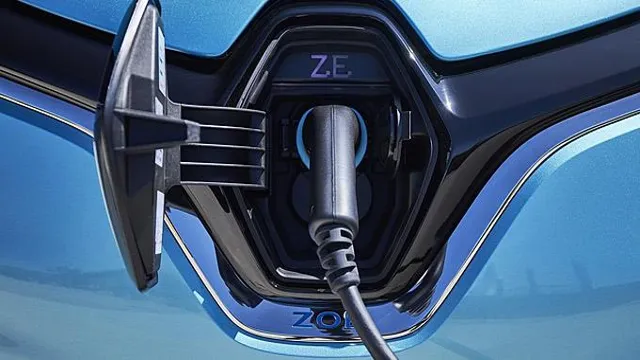
Enjoy peace of mind with extended coverage
When investing in a new battery for your vehicle, it’s important to consider the warranty that comes with it. A battery warranty can provide you with peace of mind and extended coverage, which can be beneficial in case of unexpected issues. A warranty can also ensure that your investment is protected for the long-term, so that you don’t have to worry about costly repairs or replacements in the future.
Additionally, warranties can offer added benefits and services, such as roadside assistance or free battery replacement. Choosing a battery with a strong warranty can save you both time and money, while giving you the confidence and security you need to hit the road with ease. So when shopping for a new battery, be sure to look for one with a reliable and comprehensive warranty that meets your specific needs and requirements.
What to Look for in a Battery Warranty
When it comes to purchasing an electric car, understanding the battery warranty is a crucial factor before making a decision. With electric vehicles being powered by lithium-ion batteries, the warranty on these batteries can vary greatly among different manufacturers. It is important to find a warranty that offers a reasonable amount of coverage in terms of years and mileage, as well as a warranty that covers both repair and replacement costs.
Some warranties may also cover factors such as battery capacity loss over time or environmental failures due to exposure to extreme temperatures. Ultimately, a comprehensive battery warranty can provide peace of mind and ensure that you are protected from unexpected expenses in the future. When shopping for an electric car, make sure to carefully review the battery warranty and choose one that aligns with your specific needs and expectations.
Length of Coverage
When purchasing a battery, it is important to check the length of its coverage under warranty. The length of coverage can vary significantly depending on the battery type and manufacturer. Typically, car batteries have a warranty length of 3-5 years, while deep cycle batteries may have warranties ranging from 1-10 years.
When looking for a battery warranty, it’s important to consider not only the length of coverage but also the terms and conditions. You want to make sure the warranty covers any defects or malfunctions that may occur during the specified time frame. Additionally, consider if there are any restrictions or exclusions, such as misuse or accidental damage.
It’s also worth noting that some batteries may come with prorated warranties, meaning the coverage decreases over time. Overall, checking the length and terms of a battery’s warranty can help ensure you’re getting a reliable and long-lasting product.
Transferable Warranty
When it comes to purchasing a battery, it’s important to look beyond just the advertised lifespan of the product and consider the warranty included as well. A transferable warranty is a great perk to have with any battery purchase. This means that if you ever sell your vehicle or need to replace the battery, the warranty will still remain valid for the new owner or replacement battery.
Additionally, it’s important to look for warranties that cover a range of issues, such as manufacturing defects, premature failure, or even damage caused by extreme weather conditions. A good battery warranty that is transferable will give you peace of mind and ensure that you don’t need to make additional, costly purchases if something goes wrong.
Exclusions and Limitations
When looking for a battery warranty, the first thing to consider is the exclusions and limitations that come with it. Though warranties may seem straightforward, many come with specific conditions and restrictions that may void the warranty if not adhered to. For example, some warranties may not cover damage caused by improper maintenance or misuse, such as leaving a battery sitting unused for extended periods of time or using it in extreme temperatures.
Additionally, some warranties may only cover the cost of replacing the battery and not the labor required to install it. When reviewing a battery warranty, it is important to read the fine print and ask questions to ensure that the warranty covers the specific needs of your application. Ultimately, taking the time to understand the details of a battery warranty can help protect your investment and provide peace of mind knowing that you are covered in case of unexpected issues.
Top Electric Car Battery Warranties
When looking to purchase an electric car, one important factor to consider is the battery warranty. A good battery warranty will give you peace of mind knowing that if anything happens to your battery, you’ll be covered. Some of the top electric car battery warranties include Tesla’s unlimited battery and drive unit warranty, which covers the battery for the life of the car, and Nissan’s LEAF battery warranty, which covers defects in materials and workmanship for up to eight years or 100,000 miles.
Additionally, Volkswagen’s ID.4 comes with an impressive eight-year, 100,000-mile battery warranty, while BMW’s i3 has a limited warranty that covers the battery for eight years or 100,000 miles. It’s important to read the fine print and understand what is covered under the warranty before making your decision, but having a strong battery warranty can provide added security and peace of mind.
So, when shopping for an electric car, make sure to consider the battery warranty as an important factor before making your final decision.
Tesla Battery Warranty
electric car battery warranties Electric vehicles are all the rage these days, but one concern that many buyers have is how long the battery will last and what kind of warranty comes with it. Tesla, one of the biggest electric car manufacturers in the world, offers an impressive battery warranty that sets the standard for the industry. Tesla’s battery warranty covers eight years or 150,000 miles, whichever comes first.
This is a substantial warranty, especially when you consider that many gas-powered cars only come with a three-year warranty. Additionally, Tesla’s battery warranty covers degradation – that is, the gradual loss of battery capacity over time. If your battery loses more than 30% of its original capacity within the warranty period, Tesla will replace it for free.
Overall, Tesla’s battery warranty is one of the best in the industry and provides peace of mind to electric vehicle owners.
Nissan LEAF Battery Warranty
As buyers become more conscious of their environmental impact, electric vehicles have become increasingly popular. The Nissan LEAF is one such electric car that boasts a battery warranty, making it a top choice for those seeking maximum reassurance in their investment. The Nissan LEAF battery warranty covers up to 8 years or 100,000 miles, whichever comes first.
In the event of battery capacity loss below 9 bars out of 12, Nissan is obligated to either repair or replace the battery at no cost to the owner. Furthermore, the warranty is transferable to subsequent owners, strengthening the resale value of the Nissan LEAF. When compared to other electric car warranties, such as the Chevy Volt’s 8-year/100,000-mile warranty on its electric drivetrain and Tesla’s 8-year/150,000-mile coverage, the Nissan LEAF battery warranty holds its ground as one of the best in the industry.
It’s no wonder the Nissan LEAF is a popular choice for eco-conscious drivers looking for a reliable electric vehicle with a top-performing battery warranty.
Maximizing Your Battery’s Lifespan
One factor to consider when purchasing an electric car is the battery warranty. The lifespan of an electric car’s battery can be affected by several variables such as temperature, charging habits, and age. To maximize the lifespan of your battery, it is recommended to keep it charged between 20-80%, avoid extreme temperatures, and not let it sit at a low charge level for an extended period.
Additionally, some manufacturers offer battery warranties that cover a certain amount of years or miles. It is essential to review the terms and conditions of your battery warranty carefully and make sure you follow the recommended maintenance guidelines to ensure maximum coverage. By taking proper care of your electric car’s battery, you can help extend its lifespan and possibly avoid costly repairs or replacements.
Proper Maintenance Techniques
Proper maintenance techniques are crucial when it comes to maximizing the lifespan of your battery. The first step is to ensure that your battery is always kept at the proper charge level. Overcharging or undercharging can lead to premature battery failure, so it’s important to monitor your battery’s charge regularly.
Secondly, keep your battery cool and avoid exposing it to extreme temperatures. Heat can cause the battery to degrade faster, so it’s best to store your battery in a cool and dry place. Lastly, using the right charger and keeping your battery clean can also help prolong its lifespan.
Make sure to use the charger that was specifically designed for your battery, as using the wrong charger can cause damage to the battery. Keeping your battery clean and free from debris can also ensure that it functions optimally. By following these maintenance techniques, you can ensure that your battery lasts longer and is always ready when you need it.
Driving Habits That Impact Battery Performance
When it comes to maximizing your electric vehicle’s battery lifespan, your driving habits play a vital role. One of the most crucial things you can do is avoid harsh acceleration and sudden stops. Aggressive driving styles can put immense pressure on your battery and deteriorate its overall performance.
Additionally, maintaining a consistent speed is beneficial to prolonging your battery’s lifespan. Rapid acceleration and deceleration consume more energy and can strain your battery, leading to a shorter lifespan. Lastly, minimizing the use of high electrical loads, such as air conditioning or heating systems, when not required can help conserve your battery.
Implementing these simple driving habits can make a substantial difference in maintaining your battery’s performance and longevity.
Final Thoughts
When considering purchasing an electric car, it’s important to understand the battery warranty. The warranty can vary between manufacturers and models, but a typical warranty will cover the battery for a certain number of years and miles. It’s important to check the specifics of the warranty to see what is covered and what is not.
For example, some warranties may only cover defects in the battery, while others may cover damage caused by normal wear and tear. It’s also important to understand the degradation of the battery over time, as this is not usually covered by the warranty. Overall, understanding the battery warranty is an important aspect of buying an electric car and can help you make an informed decision on which model to choose.
Conclusion
In the world of electric cars, the battery warranty may seem like the boring fine print at the bottom of the page. But in reality, it stands as a symbol of the confidence automakers have in their technology. A good battery warranty is like a promise from the manufacturer that the electric car is built to last, and that they stand behind their product.
So when it comes to buying an electric car, pay attention to the battery warranty – it’s an important factor in ensuring a smooth ride for years to come.”
FAQs
What is the typical battery warranty for electric cars?
The battery warranty for electric cars varies by manufacturer, but it can range from 8 years/100,000 miles to 10 years/150,000 miles.
Is the battery warranty transferable to a new owner if I sell my electric car?
It depends on the manufacturer and their policy. Some offer a transferable warranty, while others don’t.
What does the battery warranty cover?
The battery warranty typically covers defects in materials and workmanship, as well as capacity loss to a certain level over time.
How can I ensure my electric car’s battery remains under warranty?
To ensure your electric car’s battery remains under warranty, it’s important to follow the manufacturer’s recommended maintenance schedule and treat the battery with care, such as avoiding extreme temperatures and not letting it fully discharge frequently.

